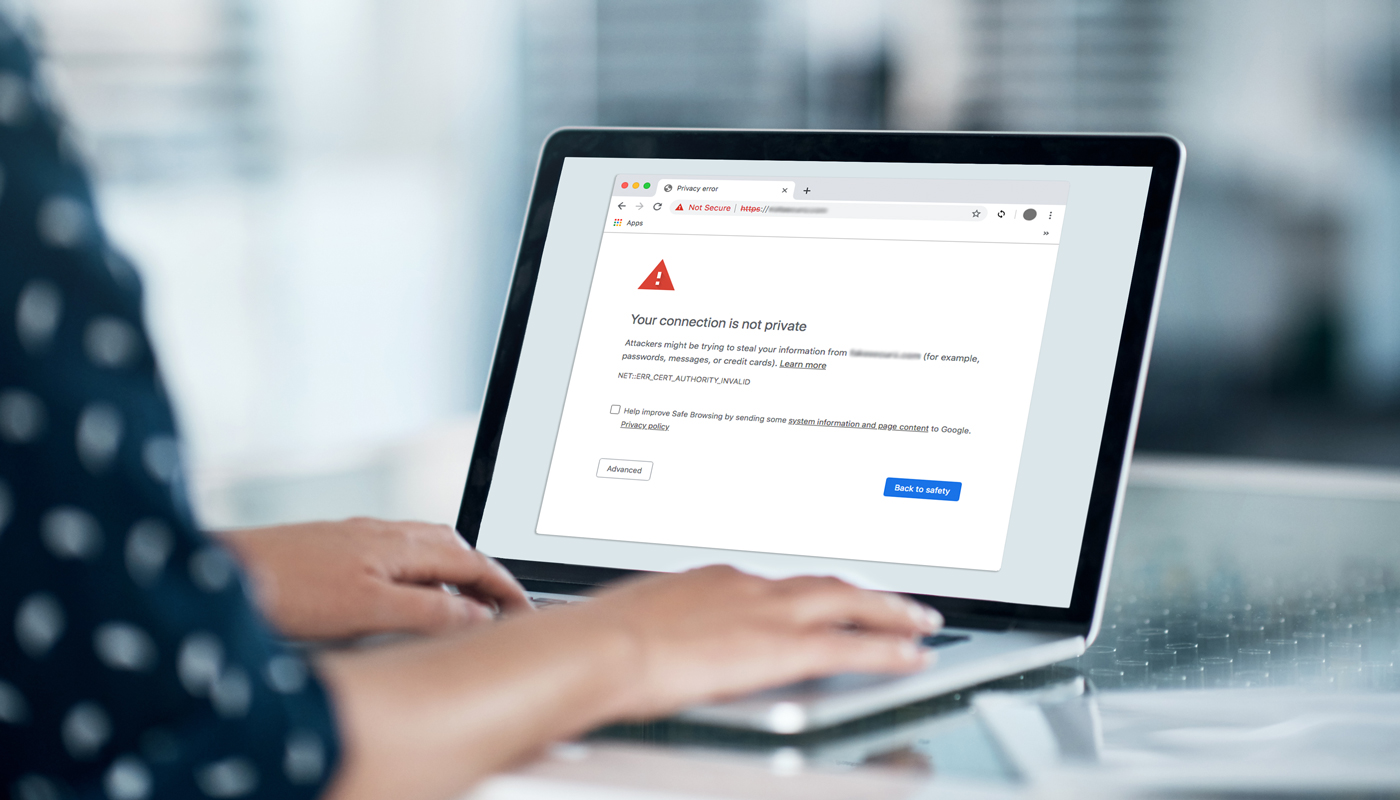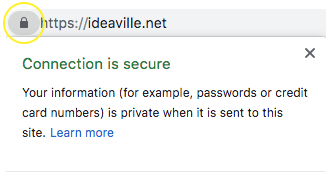
3 reasons to safeguard your website with SSL
Internet usage is a part of doing business today. For most businesses, web presence is an integral way to share and interact with prospects and customers—whether they access your website from their computers, tablets, or phones. Sharing access is great, but how often do you think about the security of your interactions on the web? It’s important to know that hackers have ways to intercept your communications from your website.
Small- and medium-sized businesses (SMBs) are increasingly targeted. It can be dangerous to think you’re exempt from these kinds of attacks, especially knowing that 85% of data breaches (about 4,000 a day) hit small businesses (InsuranceBee). That same study showed that, on average, SMBs lose $120,000 per cyber-incident.
Yikes.
The good news is, developers, tech leaders, and the like, have been gradually building a safer web. They’ve developed tools that help encrypt data and keep communications secure. And people are adding encryption tools to their sites. In 2018, Google Chrome recorded that over 78% of its Chrome OS and Mac traffic was protected through secure encryption of data.
In 2017, the average volume of encrypted internet traffic surpassed the average volume of unencrypted traffic. Security expectations will continue to rise, and we can expect to see more sites become secure through SSL certification (Wired).
How it works
When you access a website, the backend exchange goes a little like this:
Browser: Hi, Server. Can I connect to you securely over SSL? I just need your certificate.
Server: Of course. Here you go.
Browser: Thanks! Hold on while I confirm this certificate’s validity.
*hold music*
Browser: Hey, Certificate Authority. Is this certificate valid?
Certificate Authority: Let me check. …Yes, it looks good.
Browser: Thank you! Bye.
*back on the line*
Browser: Okay, your certificate is legit. I’m ready to load your page.
Server: Awesome, thanks! Here’s the webpage content.
The webpage loads in a matter of seconds.
SSL defined
The technical definition: SSL (Secure Sockets Layer) is the standard security technology for establishing an encrypted link between a web server and a browser. It transmits sensitive info securely, ensuring that all data passed between server and browser remains private (SSL.com).
In plain English, SSL is your ticket for safe internet browsing.
This makes SSL especially crucial to websites accepting confidential details — credit card numbers, passwords, and other personal intel. But even if you’re not selling anything, SSL still pertains to you.
Why you should consider SSL
Without SSL, data is shared in plain text, which hackers can easily capture and manipulate. With SSL, data is encrypted, so even if it is intercepted, it can’t be deciphered (SSL.com).
Websites with any text input features, such as login panels and contact forms, are susceptible to information interception. If a site encounters a security breach, its users’ email addresses and passwords — for example — could be compromised.
Many businesses also utilize FTP to share files, which, without protection, could be accessed by the wrong hands.
The internet is boundless, and hackers get more creative by the day. More than 40% of companies have sensitive files that are unprotected. That stat becomes even more frightening after learning that hackers stole nearly 447 million consumer records containing sensitive personal information in 2018 (Cybersecurity Ventures).
You may not experience any ramifications without SSL enabled on your website, but your risk is certainly increased.
Is my website secure?
The quickest way to identify a secure site is to look for the lock icon, in the address bar or in the lower right corner of a website. Clicking that icon often gives you a very reassuring alert:

An unsecure site will give you a more disheartening warning:
Your connection to this site is not secure
3 reasons to use SSL
1. Visitor trust
Above, you saw it’s easy to identify secure and unsecure sites. With that information readily visible across different browsers, it calls attention to the safety of your site. SSL gives clients and prospects the assurance that their information is not at risk when using your website. Enabling SSL is a simple way to promote the trustworthiness of your brand.
2. Search ranking
While SSL certification isn’t going to automatically bring you to the top of search results, it is a factor that search engines take into account. Way back in 2014, Google posted about its updated algorithm to use HTTPS as a ranking signal. Your website’s ranking in search results isn’t going to see a tremendous change by adding SSL, but Google may favor a site over another based on SSL. And there’s no telling how and when it may become an even more significant factor over time.
3. Performance
SSL performance has improved significantly since 2015. Without getting too technical, this performance boost came from a major revision of the internet’s network protocol (HTTP/2 from HTTP). While site performance was once a point of concern with SSL, this major revision to HTTP/2 has made sites with SSL faster (CSS-Tricks).
Several clients have opted for SSL in their hosting packages with us. If you need help to secure your website, let us know.
We can help
We specialize in website design, development, and hosting, and can help you no matter where your website currently falls on the spectrum. Whether you have an unsecure website, you’re looking for a new host, or you want to build a secure web presence, email us or give us a call.
